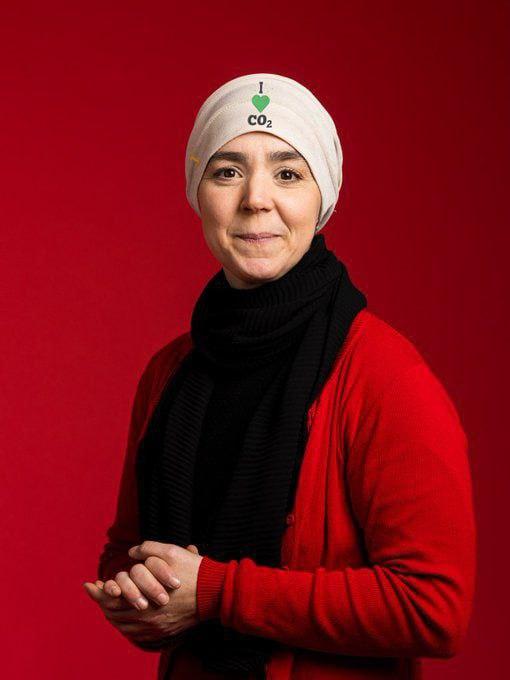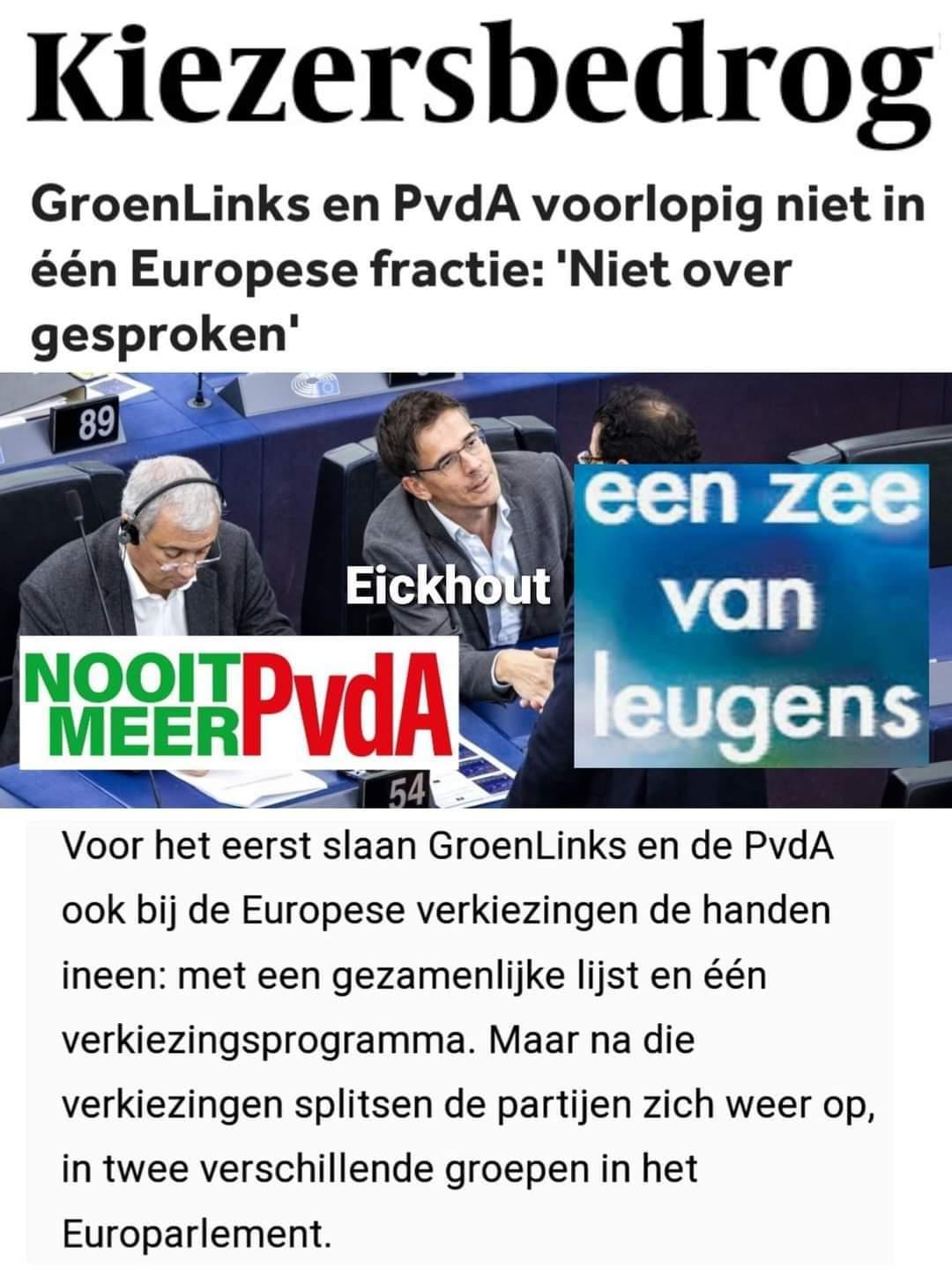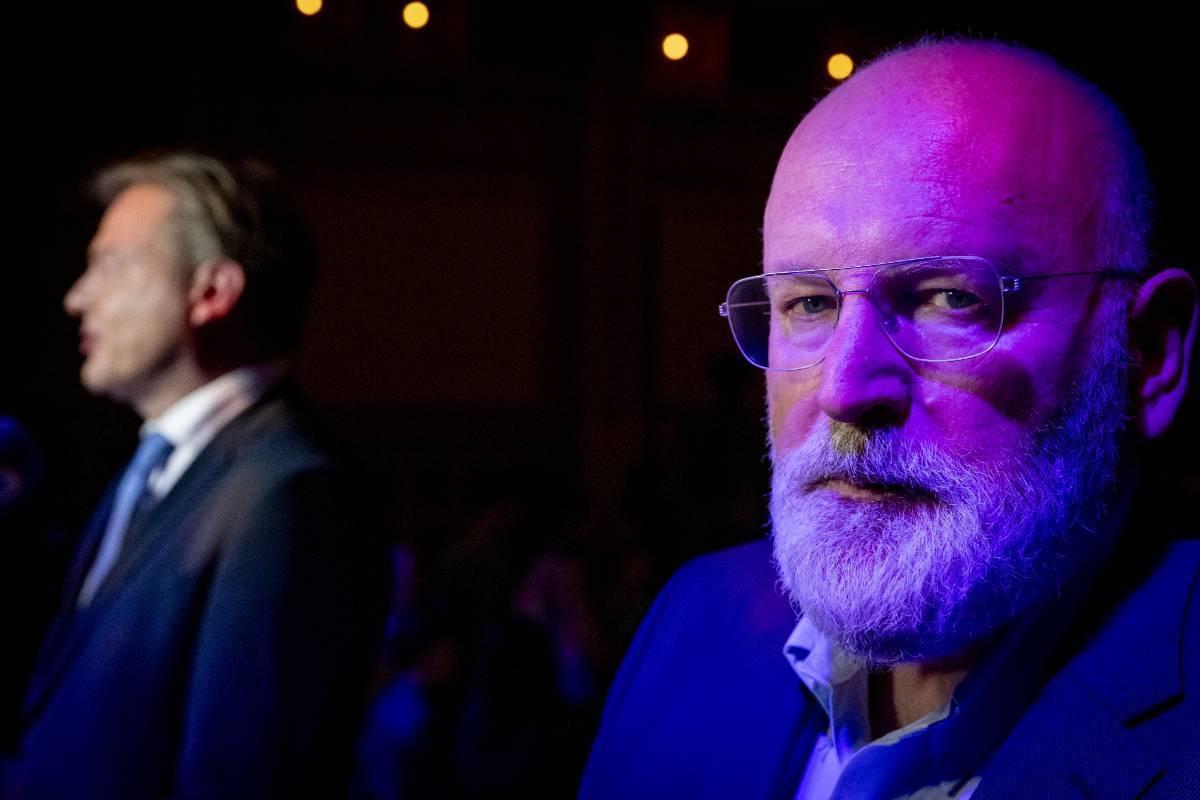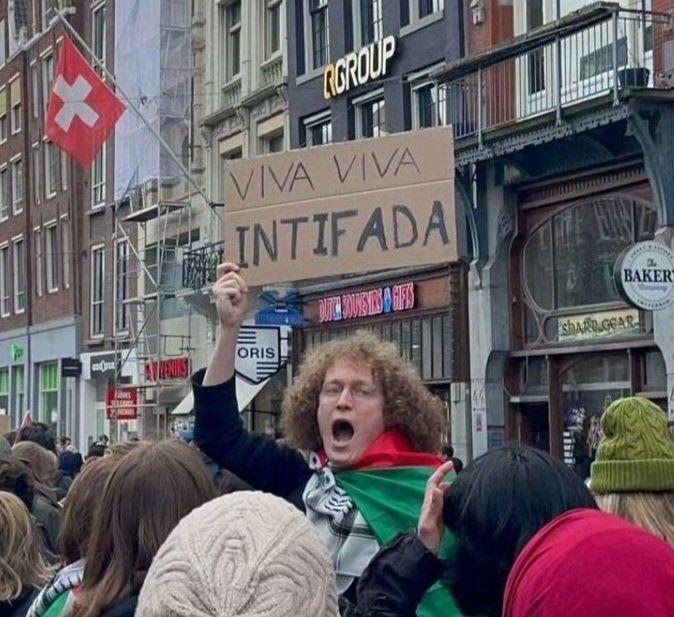Dick Schoof and the Totalitarian Managerial Revolution
Dutch prime ministers are managers, not politically inspired leaders. They are not interested in the big substantive questions. They do not care about ideology and they certainly do not enter into substantive discussion about it in public. Instead, they manage. They do not obviously follow a political agenda. This is evident from the contemporary code words that carelessly roll out of their mouths: ‘open society’, ‘diversity,’ ‘sustainability,’ ‘climate change.’ These are all management issues. That is why they always talk about ‘solutions,’ without naming the problems that do not fit in with their closed management framework.
Wim Kok studied business administration at Nyenrode in Breukelen, a private training institute integrated within the business world, which runs Masters degrees in Management. Kok became a commercial employee at a trading company, then climbed within the trade union world to become its top executive. He pioneered the Dutch, businesslike, consultation model of trade unions with employers and government, he pulled the ideological feathers out of the PvdA party and became prime minister of the pragmatic Purple Cabinet which excluded any ideology, privatising anything and everything wherever possible. After his political career, he became a director of four major Dutch companies.
Jan Peter Balkenende had a relatively ideological profile, evidenced, for example, by the fact that he was a staffer at the research centre of the political party, CDA. In his dissertation, he championed the development of civil society and talked a lot about norms and values. But after his political career, he became a partner at Ernst & Young, a business consultancy firm. Management again.
Mark Rutte was human resources manager at Unilever, recruiting and selecting staff, organising internal training courses, doing conflict management and giving strategic advice internally. In other words, he was a trained manager of people. Any ideological depth was foreign to him. At his H.J. Schoo lecture in 2013, Rutte said that having a ‘view on society’ distracts from the more important subjects in politics. Many people criticised Rutte because of this statement at that time and in a response to those people he later stated that his initial statement was not helpful for the bigger conversation he was trying to have. He would have been better off not saying anything about it. He preferred to do essential management behind the scenes anyway. There was then talk of the ‘Rutte doctrine’, which came out during the Dutch Childcare benefits scandal. Rutte felt that consultations between civil servants and ministers should not be made public. The core of this issue was not a moral question about the wrongdoings by the government system which led to this scandal, but was, according to Rutte, an internal management problem between top officials which should be solved in a technocratic way.
Dick Schoof was one such top civil servant behind the scenes. So when he was announced as the dream candidate for the premiership in the first cabinet led by Geert Wilders’ PVV party, the governing elite in The Hague's reacted with rage. He was one of them! With this prime minister, the PVV's election victory was once again secured. A new government would be formed with Dick Schoof as head of the (deep) state.
Schoof studied Spatial Planning, after which he pursued a career within the civil service, in increasingly senior management positions, step by step. He worked for the Association of Netherlands Municipalities, the Ministry of Education, Culture and Science, the Ministry of Justice, the Immigration and Naturalisation Service, the Ministry of the Interior. He was one of the architects of the new Ministry of Security and Justice, a ‘super-ministry’, where he himself became Director-General of Police. He then became National Coordinator for Counterterrorism and Security and Director-General of the General Intelligence and Security Service. He finally became Secretary-General of the Ministry of Justice and Security. In all these positions, it was said, he played a decisive role in reorganisation processes. In short, he is a super manager.
But Schoof was also supportive of and helpful to Prime Minister Rutte, who, according to a 2015 profile in the NRC newspaper, depended on this top state manager for everything he did. Three times a week, the prime minister met with the top manager on duty. In every crisis situation, Rutte wanted to know: ‘What is Dick going to do about it?’
So it is better to ask: Who actually governed here?
Or even better: Was anyone actually reacting? Or was there just management?
Civil servants are supposed to be the implementers of politics. But in reality, they are the managers who control politics. They do so efficiently. They are effective. They are authoritarian and purely functionally oriented.
Because of the huge knowledge advantage they have over politicians, they steer both the country and the politicians. The politicians have also increasingly become managers, or rather mere puppets.
This has been a pattern for a long time, and it fits into a broader social framework. The literature on it also goes back a long way. In 1911, for example, Frederick Taylor wrote a standard work on this, entitled ‘The Principles of Scientific Management,’ in which he argued that professional managers are necessary because management is about organising complex processes within large industrial companies, based on ‘objective scientific rules rather than on intuitive or traditional knowledge.’ Consequently, during the course of the 20th century, managers would become increasingly important. Not only large industrial companies could no longer do without managers, so too would banks, government organisations, the entertainment business, and practically everything else.
Managers have taken over power, wrote the American philosopher James Burnham, in a book that became a bestseller in 1941 and which is still in print. This would also be one of the great thoughts for George Orwell's novel ‘1984.’ But the same idea was also to make a big impression on the later US president Ronald Reagan.
Burnham’s book was called ‘The Managerial Revolution.’
In the Middle Ages, Burnham argues, there was a feudal power system in which princes and nobility ruled, along with the church. During the Renaissance, power gradually came to lie more and more with capitalists - traders and, over the centuries, increasingly industrialists. This was the beginning of what is called ‘modernity’.
Now, Burnham wrote in 1941, another social revolution has occurred, taking us into a new kind of society. Until World War I, capitalists ruled, then gradually the managers took over. In the US, capitalists remained in power the longest, but in Nazi Germany and in the communist world, in his view, the managers had already taken over. (Burnham also thought that Nazi Germany would win World War II as a managerial state).
According to Burnham, the social dominance of the managerial class came about because the state became the main source of production. The property rights of individuals disappeared. Control over individual rights was exercised by managers.
Burnham said that managers would have different job titles. They may be production managers or ‘chief inspectors’, or, in state service, ‘administrators’, ‘process supervisors.’ In the early stages of capitalism, the production process was still simple, and the division of labour little developed. It was manageable for the capitalists, the owners and entrepreneurs themselves.
Even in the period of Adam Smith, the famous analyst of capitalism, the capitalist was his own manager. But, with the growth of companies and internationalisation, more and more power had to be handed over to managers. The owners disappeared from the management and became remote investors. Although the US was behind in Burnham's vision, he, in 1941, already saw a whole new generation of ‘bright young men’ from the upper middle class being trained for managerial positions in government. Young men who just a generation earlier had gone into business with the same ambition. In this new world of state management, Burnham predicted, profit would play as small a role as money itself. The main product would be power through planning. Whereas the erratic market forces in a capitalist world make long-term planning difficult, and are broken, for example, by major economic crises which are unpredictable, there, in the world of state management, only managerial crises would occur.
The role of democratic parliaments would be eliminated under the new state of state management. Public parliaments would still meet, but only as rituals. Parliaments are occupied by people's representatives, politicians. They are amateurs. But in the manager state, politics and economics will be elevated to a new form, and politics, driven by ideology, would thus be abolished.
State managers are the professionals who manage the new political economy. They meet anonymously in administrative boards, commissions, agencies, or whatever it may all be called. That is where the big decisions are made, out of sight, without control by the people's representatives.
At the same time, the sovereignty of nation states would also disappear. The new sovereignty resides, Burnham said, in those administrative offices where state managers meet - increasingly in an international context. Burnham obviously did not yet know about the emergence of the EU, or the US Deep State, but he actually predicted the existence of such super-bureaucracies which transcend the state. They were the fatal consequence of the managerial revolution. In such supranational organisations, laws are pre-cooked and decrees designed in advance. Politicians are sidelined and can only preach the pre-programmed messages.
This shift in power, Burnham predicted, would take place on a global scale and would be totalitarian. Global state management would end the sovereignty of the smaller nation-states, as they exist in Europe and South America, for example. These would give way to a few large units, which he calls ‘superstates’. Judging from the industrial centres of the time, in the US, Western Europe, below Germany, and Japan, he thought there would be three: an American, European and Asian bloc. China did not play a role then, Soviet industrialisation was still at a low ebb.
At the same time, managerial thinking automatically leads to the ideal of world government. But Burnham considered it very unlikely to come to that, if only because of the technical and administrative problems it would pose and the unbridgeable ethnic and cultural differences. A world government would face a reality that would be too complex and comprehensive. No superstate was strong enough for that. Disintegrating forces would tear apart this management structure.
Burnham was a prominent Trotskyist in the US, who would later switch to conservatism. His reasoning in ‘The Managerial Revolution’ still follows the line of ‘scientific Marxism’: according to fixed social laws, one class will take power from another via revolution. He no longer believed that the proletarians would take power from the capitalists to establish the dictatorship of the proletariat. Instead, he saw how from the upper middle class, capitalism would see the managers win the battle for power. There would be a dictatorship of the managers.
Whether history proceeds along Marxist lines is open to question. Indeed, capitalism seems far from being supplanted by state power. Rather, international business seems to have taken over state power, through organisations like the World Economic Forum. Or should one say that state services and commercial enterprises have become a new hybrid form. But that international, totalitarian, managerial thinking has taken over the anarchic forms of capitalism of the 19th century, coupled with democratically organised nation-states, seems to be a fact. In that respect, Burnham was a visionary. We do indeed live in the dictatorship of managers.
That managers dominate both in the state and in business no longer seems in doubt. Specialists in a field are subordinated to the managers who rule over them. Many a sociological study establishes that. Workers, builders, politicians, philosophers, preachers, priests, writers, salesmen, scientists, lawyers - they are all slaves within management systems. They are directed, moved, programmed by managers, and so, to survive, they learn to think like managers themselves. The is actually the worst aspect of it all.
Burnham paid little attention to what managers actually do although in his time, that was probably still fairly clear. Today, you have many types of managers, operating at all levels of the power tree. They are not selected for originality or creativity but for flexibility ability, energy, learning ability, talent for delegation, enthusiasm and ambition. In the process, they belong to different management schools. There has been a proliferation of management techniques, all of which have in one way or another incorporated the concept of strategy. As early as the 1970s, it was found that more than three hundred abstract management concepts existed. Systems that entered the market in competition with each other. Today, the number of managerial concepts is probably innumerable.
‘Process management’ is a popular concept today. It is all about satisfying the customer's needs but also the flexibility of employees, who have to be more than cogs in a machine. Everything revolves around processes. In manuals and courses, you will come across texts like this:
‘Process-oriented organisations are customer-focused, holistic and results-oriented. Employees still have tasks, of course, but they think from processes. This is reflected in taking responsibility for achieving customer value rather than complying with regulations.’
It becomes clear from this kind of waning text that even the smallest wheel has become a manager in its own right, thinking and acting like a manager. They are as flexible as they are brainwashed.
This completes the takeover of power by the management revolution. We are all managers now. Even the customers and the voters will be expected to operate as ‘process managers’.
It is quite difficult then not to conclude that all people have become slaves to the same totalitarian system. When they want to look up to the leader, who is supposed to have a vision, they see nothing there but the same manager which they themselves have also become. A person like Dick Schoof.
Rebellion is no longer possible, because by whom, against whom, for what? It is much worse than already described in 1984.
Substantial change can only start with the question of what kind of world we actually want to live in, regardless of the efficiency question by the managers in us. That is a way of thinking which we hardly master any more. We are dealing with questions without practicality but of great philosophical, religious and philosophical value.
Either way, we have to start all over again with who we are.
Dick Schoof and the Totalitarian Managerial Revolution
Dutch prime ministers are managers, not politically inspired leaders. They are not interested in the big substantive questions. They do not care about ideology and they certainly do not enter into substantive discussion about it in public. Instead, they manage. They do not obviously follow a political agenda. This is evident from the contemporary code words that carelessly roll out of their mouths: ‘open society’, ‘diversity,’ ‘sustainability,’ ‘climate change.’ These are all management issues. That is why they always talk about ‘solutions,’ without naming the problems that do not fit in with their closed management framework.
Wim Kok studied business administration at Nyenrode in Breukelen, a private training institute integrated within the business world, which runs Masters degrees in Management. Kok became a commercial employee at a trading company, then climbed within the trade union world to become its top executive. He pioneered the Dutch, businesslike, consultation model of trade unions with employers and government, he pulled the ideological feathers out of the PvdA party and became prime minister of the pragmatic Purple Cabinet which excluded any ideology, privatising anything and everything wherever possible. After his political career, he became a director of four major Dutch companies.
Jan Peter Balkenende had a relatively ideological profile, evidenced, for example, by the fact that he was a staffer at the research centre of the political party, CDA. In his dissertation, he championed the development of civil society and talked a lot about norms and values. But after his political career, he became a partner at Ernst & Young, a business consultancy firm. Management again.
Mark Rutte was human resources manager at Unilever, recruiting and selecting staff, organising internal training courses, doing conflict management and giving strategic advice internally. In other words, he was a trained manager of people. Any ideological depth was foreign to him. At his H.J. Schoo lecture in 2013, Rutte said that having a ‘view on society’ distracts from the more important subjects in politics. Many people criticised Rutte because of this statement at that time and in a response to those people he later stated that his initial statement was not helpful for the bigger conversation he was trying to have. He would have been better off not saying anything about it. He preferred to do essential management behind the scenes anyway. There was then talk of the ‘Rutte doctrine’, which came out during the Dutch Childcare benefits scandal. Rutte felt that consultations between civil servants and ministers should not be made public. The core of this issue was not a moral question about the wrongdoings by the government system which led to this scandal, but was, according to Rutte, an internal management problem between top officials which should be solved in a technocratic way.
Dick Schoof was one such top civil servant behind the scenes. So when he was announced as the dream candidate for the premiership in the first cabinet led by Geert Wilders’ PVV party, the governing elite in The Hague's reacted with rage. He was one of them! With this prime minister, the PVV's election victory was once again secured. A new government would be formed with Dick Schoof as head of the (deep) state.
Schoof studied Spatial Planning, after which he pursued a career within the civil service, in increasingly senior management positions, step by step. He worked for the Association of Netherlands Municipalities, the Ministry of Education, Culture and Science, the Ministry of Justice, the Immigration and Naturalisation Service, the Ministry of the Interior. He was one of the architects of the new Ministry of Security and Justice, a ‘super-ministry’, where he himself became Director-General of Police. He then became National Coordinator for Counterterrorism and Security and Director-General of the General Intelligence and Security Service. He finally became Secretary-General of the Ministry of Justice and Security. In all these positions, it was said, he played a decisive role in reorganisation processes. In short, he is a super manager.
But Schoof was also supportive of and helpful to Prime Minister Rutte, who, according to a 2015 profile in the NRC newspaper, depended on this top state manager for everything he did. Three times a week, the prime minister met with the top manager on duty. In every crisis situation, Rutte wanted to know: ‘What is Dick going to do about it?’
So it is better to ask: Who actually governed here?
Or even better: Was anyone actually reacting? Or was there just management?
Civil servants are supposed to be the implementers of politics. But in reality, they are the managers who control politics. They do so efficiently. They are effective. They are authoritarian and purely functionally oriented.
Because of the huge knowledge advantage they have over politicians, they steer both the country and the politicians. The politicians have also increasingly become managers, or rather mere puppets.
This has been a pattern for a long time, and it fits into a broader social framework. The literature on it also goes back a long way. In 1911, for example, Frederick Taylor wrote a standard work on this, entitled ‘The Principles of Scientific Management,’ in which he argued that professional managers are necessary because management is about organising complex processes within large industrial companies, based on ‘objective scientific rules rather than on intuitive or traditional knowledge.’ Consequently, during the course of the 20th century, managers would become increasingly important. Not only large industrial companies could no longer do without managers, so too would banks, government organisations, the entertainment business, and practically everything else.
Managers have taken over power, wrote the American philosopher James Burnham, in a book that became a bestseller in 1941 and which is still in print. This would also be one of the great thoughts for George Orwell's novel ‘1984.’ But the same idea was also to make a big impression on the later US president Ronald Reagan.
Burnham’s book was called ‘The Managerial Revolution.’
In the Middle Ages, Burnham argues, there was a feudal power system in which princes and nobility ruled, along with the church. During the Renaissance, power gradually came to lie more and more with capitalists - traders and, over the centuries, increasingly industrialists. This was the beginning of what is called ‘modernity’.
Now, Burnham wrote in 1941, another social revolution has occurred, taking us into a new kind of society. Until World War I, capitalists ruled, then gradually the managers took over. In the US, capitalists remained in power the longest, but in Nazi Germany and in the communist world, in his view, the managers had already taken over. (Burnham also thought that Nazi Germany would win World War II as a managerial state).
According to Burnham, the social dominance of the managerial class came about because the state became the main source of production. The property rights of individuals disappeared. Control over individual rights was exercised by managers.
Burnham said that managers would have different job titles. They may be production managers or ‘chief inspectors’, or, in state service, ‘administrators’, ‘process supervisors.’ In the early stages of capitalism, the production process was still simple, and the division of labour little developed. It was manageable for the capitalists, the owners and entrepreneurs themselves.
Even in the period of Adam Smith, the famous analyst of capitalism, the capitalist was his own manager. But, with the growth of companies and internationalisation, more and more power had to be handed over to managers. The owners disappeared from the management and became remote investors. Although the US was behind in Burnham's vision, he, in 1941, already saw a whole new generation of ‘bright young men’ from the upper middle class being trained for managerial positions in government. Young men who just a generation earlier had gone into business with the same ambition. In this new world of state management, Burnham predicted, profit would play as small a role as money itself. The main product would be power through planning. Whereas the erratic market forces in a capitalist world make long-term planning difficult, and are broken, for example, by major economic crises which are unpredictable, there, in the world of state management, only managerial crises would occur.
The role of democratic parliaments would be eliminated under the new state of state management. Public parliaments would still meet, but only as rituals. Parliaments are occupied by people's representatives, politicians. They are amateurs. But in the manager state, politics and economics will be elevated to a new form, and politics, driven by ideology, would thus be abolished.
State managers are the professionals who manage the new political economy. They meet anonymously in administrative boards, commissions, agencies, or whatever it may all be called. That is where the big decisions are made, out of sight, without control by the people's representatives.
At the same time, the sovereignty of nation states would also disappear. The new sovereignty resides, Burnham said, in those administrative offices where state managers meet - increasingly in an international context. Burnham obviously did not yet know about the emergence of the EU, or the US Deep State, but he actually predicted the existence of such super-bureaucracies which transcend the state. They were the fatal consequence of the managerial revolution. In such supranational organisations, laws are pre-cooked and decrees designed in advance. Politicians are sidelined and can only preach the pre-programmed messages.
This shift in power, Burnham predicted, would take place on a global scale and would be totalitarian. Global state management would end the sovereignty of the smaller nation-states, as they exist in Europe and South America, for example. These would give way to a few large units, which he calls ‘superstates’. Judging from the industrial centres of the time, in the US, Western Europe, below Germany, and Japan, he thought there would be three: an American, European and Asian bloc. China did not play a role then, Soviet industrialisation was still at a low ebb.
At the same time, managerial thinking automatically leads to the ideal of world government. But Burnham considered it very unlikely to come to that, if only because of the technical and administrative problems it would pose and the unbridgeable ethnic and cultural differences. A world government would face a reality that would be too complex and comprehensive. No superstate was strong enough for that. Disintegrating forces would tear apart this management structure.
Burnham was a prominent Trotskyist in the US, who would later switch to conservatism. His reasoning in ‘The Managerial Revolution’ still follows the line of ‘scientific Marxism’: according to fixed social laws, one class will take power from another via revolution. He no longer believed that the proletarians would take power from the capitalists to establish the dictatorship of the proletariat. Instead, he saw how from the upper middle class, capitalism would see the managers win the battle for power. There would be a dictatorship of the managers.
Whether history proceeds along Marxist lines is open to question. Indeed, capitalism seems far from being supplanted by state power. Rather, international business seems to have taken over state power, through organisations like the World Economic Forum. Or should one say that state services and commercial enterprises have become a new hybrid form. But that international, totalitarian, managerial thinking has taken over the anarchic forms of capitalism of the 19th century, coupled with democratically organised nation-states, seems to be a fact. In that respect, Burnham was a visionary. We do indeed live in the dictatorship of managers.
That managers dominate both in the state and in business no longer seems in doubt. Specialists in a field are subordinated to the managers who rule over them. Many a sociological study establishes that. Workers, builders, politicians, philosophers, preachers, priests, writers, salesmen, scientists, lawyers - they are all slaves within management systems. They are directed, moved, programmed by managers, and so, to survive, they learn to think like managers themselves. The is actually the worst aspect of it all.
Burnham paid little attention to what managers actually do although in his time, that was probably still fairly clear. Today, you have many types of managers, operating at all levels of the power tree. They are not selected for originality or creativity but for flexibility ability, energy, learning ability, talent for delegation, enthusiasm and ambition. In the process, they belong to different management schools. There has been a proliferation of management techniques, all of which have in one way or another incorporated the concept of strategy. As early as the 1970s, it was found that more than three hundred abstract management concepts existed. Systems that entered the market in competition with each other. Today, the number of managerial concepts is probably innumerable.
‘Process management’ is a popular concept today. It is all about satisfying the customer's needs but also the flexibility of employees, who have to be more than cogs in a machine. Everything revolves around processes. In manuals and courses, you will come across texts like this:
‘Process-oriented organisations are customer-focused, holistic and results-oriented. Employees still have tasks, of course, but they think from processes. This is reflected in taking responsibility for achieving customer value rather than complying with regulations.’
It becomes clear from this kind of waning text that even the smallest wheel has become a manager in its own right, thinking and acting like a manager. They are as flexible as they are brainwashed.
This completes the takeover of power by the management revolution. We are all managers now. Even the customers and the voters will be expected to operate as ‘process managers’.
It is quite difficult then not to conclude that all people have become slaves to the same totalitarian system. When they want to look up to the leader, who is supposed to have a vision, they see nothing there but the same manager which they themselves have also become. A person like Dick Schoof.
Rebellion is no longer possible, because by whom, against whom, for what? It is much worse than already described in 1984.
Substantial change can only start with the question of what kind of world we actually want to live in, regardless of the efficiency question by the managers in us. That is a way of thinking which we hardly master any more. We are dealing with questions without practicality but of great philosophical, religious and philosophical value.
Either way, we have to start all over again with who we are.











